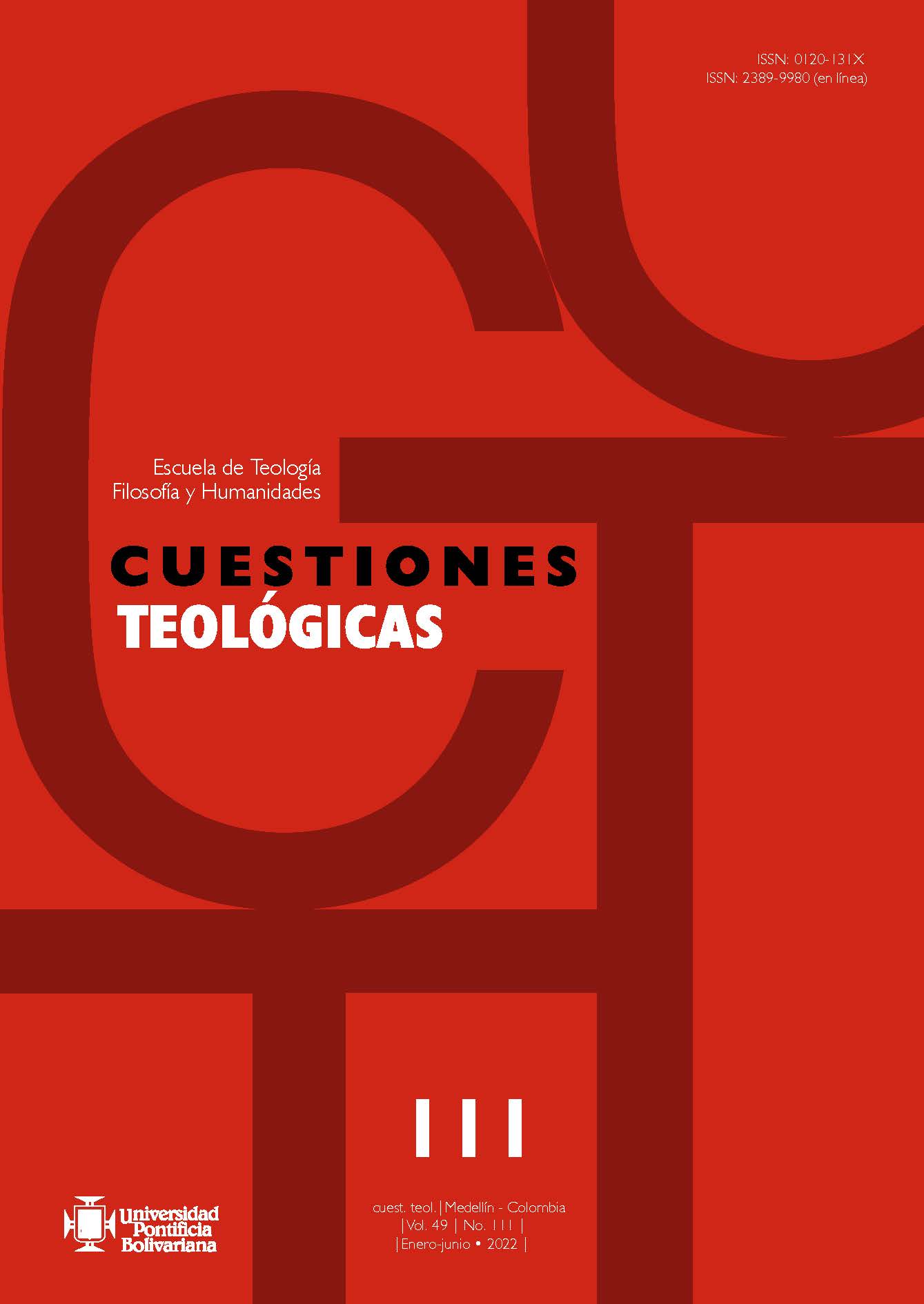The three “poles” of the theological method
Main Article Content
Abstract
The question of method has been a recurring theme in theology over the last two centuries. This has been partly caused by the process that gave rise to the epistemology of sciences in modern and contemporary times; and also in part, due to the internal process of theological work, urged to take into account the context in which it is elaborated. This question has marked Christian theology since then. The extraordinary development experienced by theology since the end of the 19th century, both in the Protestant, Orthodox and Catholic world, is surely determined by the way in which the theological method has been understood. Several works of a historical nature, produced in recent decades, offer a reading of the currents that emerged throughout that period, though not specifically with an emphasis on an overview of the methods used. The objective of this study is to propose elements to elaborate such a vision. Its conceptual framework regroups some of the theological "models" of the last 150 years, taken from the typologies proposed by Rosino Gibellini and Jean
Greisch, around three poles from which the theological work takes place: the one that clarifies the hermeneutical presuppositions of the recipient, the one who puts the emphasis on the message, the one who is concerned with the speaking conditions of the sender. The interest of this type of study is to offer a kind of "map" from which one can locate oneself in one's own theological work, especially in a time of great cultural and theological pluralism, so that one can discern which pole should be privileged.
References
Barth, K. (1962). L’epistola ai Romani. Feltrinelli.
Boff, C. (2000). Teoria del metodo teologico: Versione didattica. Messaggero.
Bultmann, R. (1963). Credere e comprendere (vol. 3). Queriniana.
Campo, C. M. (1939). Wolff e il racionalismo precritico (vol. 2). Vita e pensiero.
De Mori, G. L. (2019). Paradigmas do estudo da religião: As contribuições de Jean Greisch. Horizonte, 17(53), 615-650. https://doi.org/10.5752/P.2175-5841.2019v17n53p615
Dumas, M. (2004). Corrélation-Tillich et Schillebeeckx. En G. Routhier y M. Viau (dirs.), Précis de théologie pratique (pp. 71-83). Novalis.
Gibellini, R. (2007). La teologia del XX Secolo. Queriniana.
Greisch, J. (2002a). Le Buisson ardent et les Lumières de la Raison. Vol. 1: L’invention de la philosophie de la religion. Héritiers et Héritages du XIXe siècle. Cerf.
Greisch, J. (2002b). Le Buisson ardent et les Lumières de la Raison. Vol. 2: Les approches phénoménologiques et analytiques. Cerf.
Greisch, J. (2004). Le Buisson ardent et les Lumières de la Raison. Vol. 3: Vers un paradigme herméneutique. Cerf.
Hocédez, E. (1948). Histoire de la théologie au XIXe siècle. Desclée.
Merker, N. (1967). Cristiano Wolff e la metodologia del razionalismo. Rivista critica di storia della filosofia, 22(3), 271-293.
Metz, J. B. (1968). Zur Theologie der Welt. Matthias-Grünewald-Verlag.
Metz, J. B. (1979). Sulla teologia del mondo. Queriniana.
Metz, J. B. y Tosti, L. (1978). La fede, nella storia e nella società: Studi per una teologia fondamentale pratica. Queriniana.
Mondin, B. (1997). La Cristologia di San Tommaso D'Aquino. Roma: Urbaniana Univ. Press.
Mondin, B. (2003). O homem, quem é ele. Elementos de antropologia filosófica. São Paulo: Paulus.
Rabeau, G. (1926). Introduction à l’étude de la théologie. Bloud & Gay.
Rahner, K. (1957). Geist in Welt (2.ª ed.). Kösel.
Rahner, K. (1963). Hörer des Wortes: Zu Grundlegung einer Religionsphilospophie. Kösel.
Schillebeeckx, E. (1975). Intelligenza della fede: Interpretazione e critica. Paoline.
Taylor, C. (2015). La era secular. Gedisa.
Theobald, C. (2021). Le courage de penser l’avenir: Études oecuméniques de théologie fondamentale et ecclésiologique. Cerf.
Tillich, P. (1962a). Die verlorene Dimension: Not und Hoffnung unserrer Zeit. Furche Verlag.
Tillich, P. (1962b). Religionsphilosophie. Kohlhammer.
Tracy, D. (2006). A imaginação analógica: A teologia cristã e a cultura do pluralismo. Unisinos.
Viau, M. (2004). Précis de théologie pratique. Novalis/Lumen Vitae.
Von Balthasar, H. U. (1969). Seriedad con las cosas. Córdula o el caso auténtico. Salamanca: Sígueme.
Von Balthasar, H. U. (1978). Gloria: Una estética teológica (vol. 5). Jaca Book.
Von Balthasar, H. U. (1986). Teodrammatica (vol. 5). Jaca Book.
Von Balthasar, H. U. (1992). Teologica. Jaca Book.






